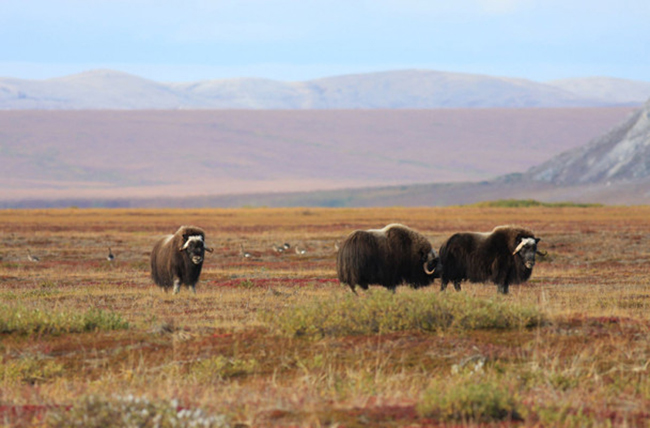
Governor Sean Parnell has signed into law a piece of legislation to stop development of the Beringia International park. Senate Joint Resolution 15 urges the federal government to end efforts “pursuing the creation of an International Park” stretching from Northwest Alaska into Russia.
“This is a park that has been going forward quietly over the years. It sounds like such a laudable goal,” said state Senator Cathy Giessel, who sponsored the resolution, and wants an end to the memorandum of understanding between the U.S. and Russia out of concern over Alaska’s resources. “My concern however is it’s a United Nations designation that could affect the use of our natural resources.”
But in actual terms the resolution’s passage into law does very little to the National Park Service’s work on the Beringia Shared Heritage Program.
“It was stopped because of the situation in the Ukraine with Russia,” explained John Quinley, a spokesman for the National Park Service. “The United States government suspended almost all its bilateral engagements and negotiations with the Russian Federation, including negotiations about the Beringia MOU.”
In February NPS sent a letter to pointing out a range of factual errors and mistaken assumptions in the language of Geisel’s resolution, as well as the reporting of it.
One such claim is that the state of Alaska and U.S. Congress haven’t been able to give input as the federal government pushes the memorandum of understanding through. The Parks Service’s letter, however, points out the state provided a range of comments—some as recent as 2012.
Geisel introduced the legislation in December, before government sanctions against Russia. And her chief worry is a repeat of what’s playing out with the proposed airport road in Cold Bay, with international bodies dictating how Alaskans use their land.
“Would we then be limited in resource development and use of fishing and game resources?” Giessel asked.
The Park Service letter tried to correct conclusions like that one, laying out misunderstandings in the bill’s grasp of the Beringia Shared Heritage Program’s scope, goals, and basic legality. Section eight of the MOU, for example, spells out, “This legally nonbinding Memorandum is not an international agreement and does not create any rights or obligations under international law.”
In spite of the legislative rhetoric, much of the environmental and cultural research underpinning the goal of an eventual shared park is set to continue.
“Research about the archeology, subsistence uses, and how sea ice and other climate issues are changing and evolving in that area. We think that work is important and should continue, we’re continuing to fund some of it,” Quinley explained of upcoming research work under the Beringia Shared Heritage Program. “We think the idea of learning about the area is important.”
The memorandum of understanding with Russia has no timetable for resumption until Congress lifts sanctions placed on the Russian government.
